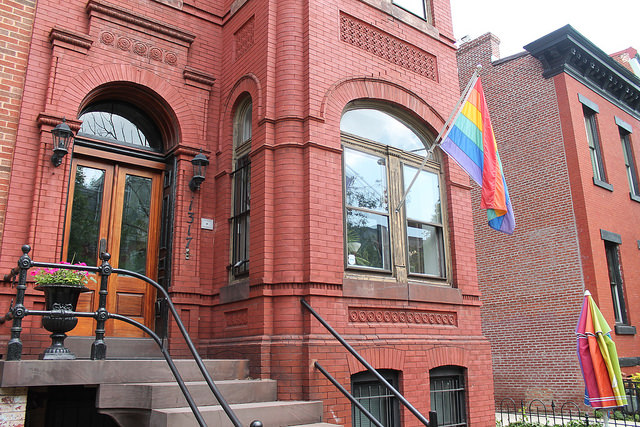
Pride month, with all its fun and flair, has come to a close as various parades and festivals to celebrate LGBTQ rights and inclusion finished up around the world. But now that Pride is over for another year, this doesn’t mean we can forget about LGBTQ communities. While the social acceptance of LGBT communities has increased in recent decades, this does not necessarily mean these communities receive support in practice.
In a recent Op-Ed for the Los Angeles Times, sociologist Amin Ghaziani discusses his research on heterosexual attitudes towards same-sex relationships. While heterosexuals are willing to extend ‘formal rights’ to gay couples, like hospital visitation and family leave, studies reveal that straight people are less willing to demonstrate political engagement or material support for LGBTQ communities. In their research on ‘Gayborhoods” — urban districts with a prominent LGBT presence — Amin Ghaziani and Adriana Brodyn find that increased liberal attitudes towards homosexuality may actually mask the persistence of discrimination and prejudices among straight residents.
While Ghaziani’s participants generally accepted gay rights, the residents often did not make a concerted effort as allies to help improve LGBTQ livelihoods. Ghaziani describes the concept of ‘privilege fatigue’ — frustration that stems from the coexistence between progressive attitudes about homosexuality and conservative-to-apathetic behavior towards the LGBTQ community. Ghaziani’s research demonstrates that prejudice remains, and that acceptability does not necessarily translate into advocacy for queer lives. As Ghaziani concludes,
“We are mistaken if we interpret — or celebrate — straight people moving into gay neighborhoods as evidence that we have made significant strides toward equality. True progress would be things like employment and housing non-discrimination laws, closing the sexual orientation wage gap, addressing anti-gay and anti-trans hate crimes, and other pressing social problems. Unless progressive straights are helping on those fronts, they may be gays’ neighbors, but they aren’t their allies.”

Comments 6
Yandex support — July 5, 2018
This is seriously prided month for a user, but I want more about this matter, so i request you to provide more about this matter.
jhonperker — July 5, 2018
This is seriously prided month for a user, but I want more about this matter, so I decide you to go yandex support here I find all kind of information which will I need.
Unable To Login AOL Account — April 15, 2019
I have some suggestion about technical related, so for that if you interested in it then you will just get some review and from there you will be very helpful, Further about it then just Visit: Unable To Login AOL Account
AOL Mail Not Working — April 19, 2019
Thanks, great post. I really like your point of view. I work as a support executive for Email. I am offering support for Email and If you need help then contact
AOL Mail Not Working
Epson Error 0x10 — July 8, 2020
Thanks for the information, this is very useful. Allow me to share a health article here, which gods are beneficial to us. Thank you :) for more information click here: Epson Error 0x10
Create and Delete Budget in QuickBooks Desktop — August 13, 2020
Thank you for sharing. Thanks to this blog I can learn more things. Expand your knowledge and abilities. Actually the article is very practical. Thank you!